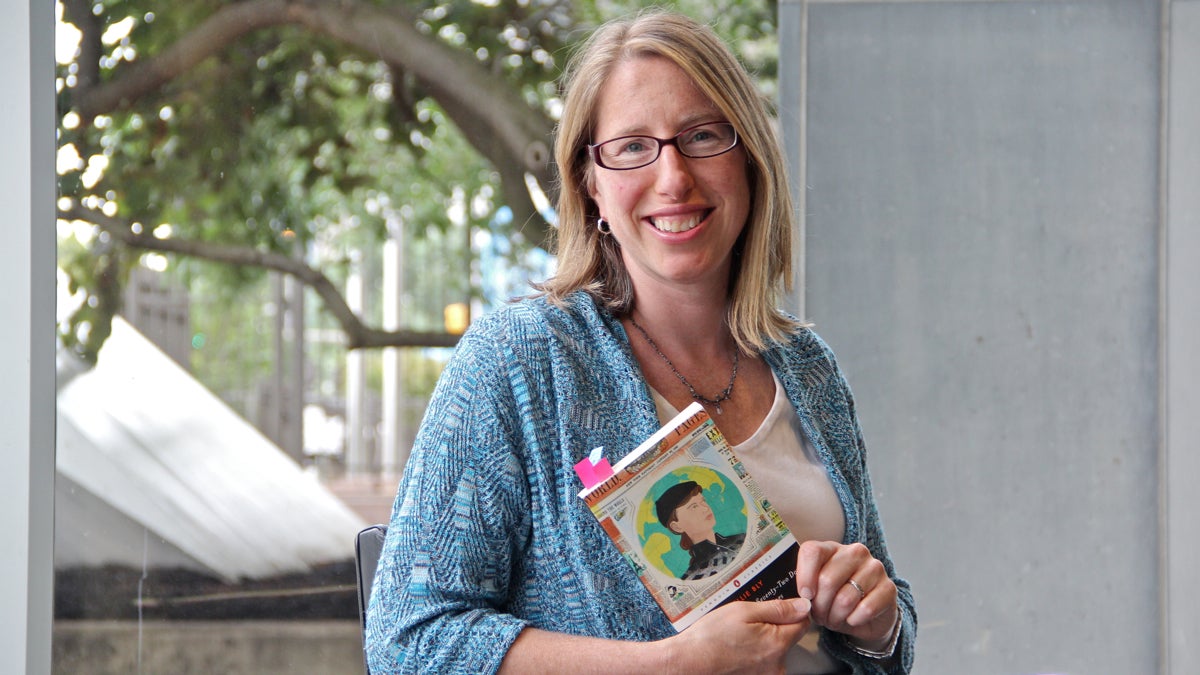Pa.-born Nellie Bly, pioneer of ‘stunt journalism,’ was the story of her time
Listen
Villanova professor Jean Marie Lutes edited a new anthology of work by reporter Nellie Bly, Around the World in Seventy-Two Days and Other Writings. (Emma Lee/WHYY)
In the late 1800s when female journalists were shunned in most newsrooms, Pennsylvania-born reporter Nellie Bly helped change the world by writing about it — and herself.
Bly was barely 20 years old when she plowed her way into the newsroom at Joseph Pulitzer’s New York World to ask for a job. Not long after, she shot to international fame with several sensational stories written in the “stunt journalism” style she pioneered.
“Nellie Bly’s story was irresistible to me because she was so young and so brave, and she was so willing to challenge the authority of people that she had no business believing that she could prevail over,” said Villanova University professor Jean Marie Lutes, who has edited a new anthology of Bly’s work, “Around the World in Seventy-Two Days and Other Writings.”
“She was never afraid to challenge people in power.”
Bly’s most famous story grew out of one of her very first assignments at the World: to infiltrate the Blackwell’s Island insane asylum for women and write about the conditions there.
Her scathing report on spending 10 days in the facility was sympathetic toward the patients and chronicled abuses at the hands of nurses and doctors.
“The attention that her report received helped to inspire millions of dollars to be used to make conditions better there,” said Lutes.
She would continue to practice such stunt journalism — putting herself in harrowing situations and then writing about experiences such as traveling around the world in 72 days — throughout most of her career.
Later in her career, Bly went on to publish in-depth interviews with newsmakers, work as a war correspondent, and write an advice column.
But Lutes notes that even with all those years as part of the fourth estate, Bly never received widespread respect from her fellow journalists.
“Throughout her career, even when she was doing really well and getting a lot of attention, she was consistently marginalized from the central power of the newspaper business,” Lutes said.
WHYY is your source for fact-based, in-depth journalism and information. As a nonprofit organization, we rely on financial support from readers like you. Please give today.





